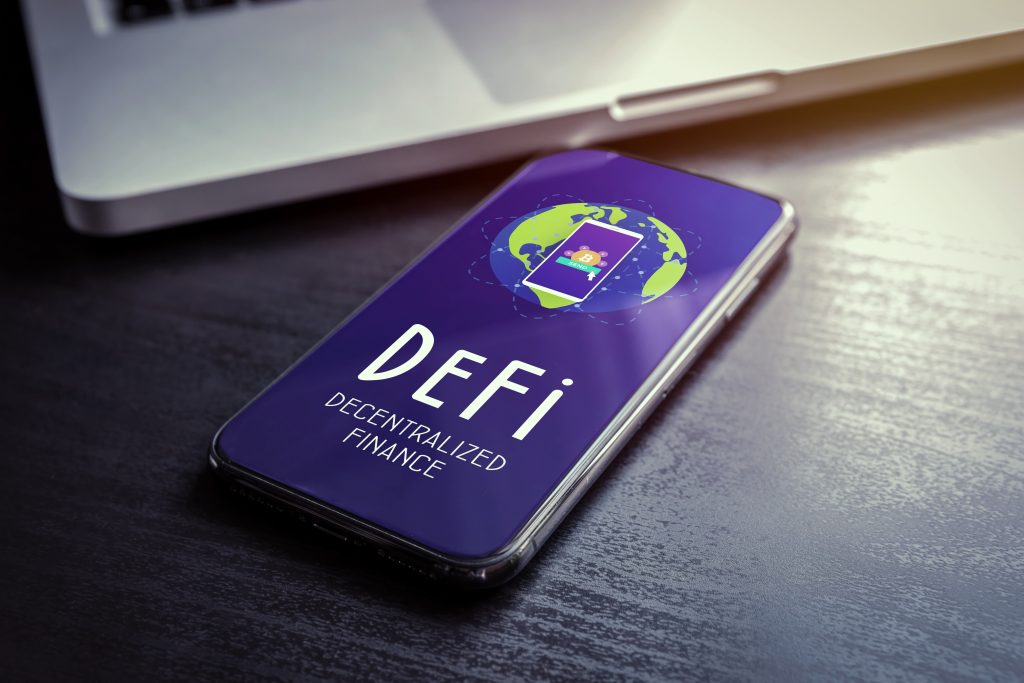Exploring The Benefits Of DeFi
Explore the world of DeFi, a groundbreaking approach to finance that eliminates intermediaries, ensuring accessibility and transparency.

Traditional finance systems have long been centralized, controlled by banks and institutions. But what if there was a way to break free from these constraints? Enter decentralized finance, or DeFi. In recent years, DeFi has gained significant traction, offering a new and innovative approach to financial systems. But why does decentralized finance matter, and what benefits does it bring? In this article, we will explore the world of DeFi and delve into its advantages, highlighting why it has become a game-changer in the financial industry.
The traditional financial system has its limitations, with centralized authorities often controlling transactions, imposing fees, and limiting accessibility. However, DeFi aims to revolutionize this landscape by utilizing blockchain technology and smart contracts to create a decentralized and open financial ecosystem. As a result, individuals can now access financial services and products without the need for intermediaries or centralized control.
Decentralized finance is not just a buzzword; it represents a fundamental shift in the way we perceive and interact with financial systems. By exploring the benefits of DeFi, we can understand why it matters and why it has garnered so much attention. Join us as we uncover the exciting world of decentralized finance and its potential to reshape the future of finance.
Benefits of Decentralized Finance
Decentralized finance (DeFi) offers numerous benefits, including broadening financial inclusion by providing access to financial services for individuals who may not have had access to traditional banking systems. By eliminating intermediaries, DeFi also reduces costs and barriers to entry, making financial services more accessible to a larger population.
Furthermore, DeFi promotes trustless financial intermediation, as transactions are executed through smart contracts on a blockchain, reducing the need for trust in third parties. This also ensures transparency, as all transactions and contracts are recorded on a public ledger, increasing accountability and reducing the risk of fraud.
In addition, DeFi increases efficiency by streamlining processes and reducing the time and costs associated with traditional financial systems. With lower fees and quicker transactions, DeFi provides a more efficient alternative to traditional finance.
Overall, the benefits of decentralized finance include promoting financial inclusion, eliminating intermediaries, enabling trustless financial intermediation, ensuring transparency, and increasing efficiency, ultimately making financial services more accessible and efficient for a larger population.

Exploring the Benefits of DeFi
Decentralized Finance, or DeFi, is a relatively new concept that is revolutionizing the way people can access financial services. By removing the need for traditional intermediaries such as banks, DeFi offers a range of benefits to users, including greater accessibility, lower costs, and increased financial inclusion.
Faster Settlement Times and Lower Fees
To achieve faster settlement times and lower fees, the company can streamline internal processes, integrate with more efficient payment systems, and renegotiate contracts with vendors. By eliminating unnecessary steps and automating manual processes, the company can accelerate the settlement of transactions. Integrating with more efficient payment systems can also expedite the processing of payments and reduce associated fees. Renegotiating contracts with vendors allows for better terms and pricing, ultimately leading to cost savings and lower fees.
Reducing settlement times can lead to improved cash flow by enabling the company to access funds more quickly. This allows for better management of working capital and reduces the need for short-term borrowing. Additionally, faster settlements can enhance customer satisfaction by providing timely and efficient payment processing. Lowering fees can increase profit margins and allow the company to offer more competitive pricing, giving it a competitive advantage in the market. By implementing these changes, the company can benefit from improved cash flow, cost savings, and increased customer satisfaction.
Improved Accessibility to Financial Applications
Decentralized finance (DeFi) greatly improves accessibility to financial applications by providing a platform for individuals who are unbanked or underbanked to access a wide range of financial services without the need for traditional banks. DeFi increases efficiency by automating processes through smart contracts, reducing the need for intermediaries and lowering costs. The transparency of the blockchain technology behind DeFi also ensures that all transactions and data are visible to anyone, creating a more trustworthy and open financial system.
Moreover, DeFi allows for the easy composition of contracts through its decentralized environment, making it simple for individuals to engage in peer-to-peer lending, trading, and other financial activities. Overall, DeFi increases accessibility, efficiency, transparency, and reduces barriers to entry for those who are marginalized by traditional financial systems.
Increased Transparency in Financial Transactions
Decentralized Finance (DeFi) enhances transparency in financial transactions through several mechanisms. Firstly, all activities are recorded on the blockchain, which is a public and immutable ledger. This allows anyone to view and verify transactions, promoting transparency. Additionally, DeFi accounts are pseudo-anonymous, meaning they are not directly tied to real-world identities, but all transaction history is publicly accessible. Moreover, DeFi projects often utilize open-source code, allowing users to review or build upon it, further enhancing transparency and accountability.
In DeFi, capital reserves are auditable and enable effective risk assessment and management. In contrast, the traditional financial system lacks transparency, resulting in opaque capital reserves and risk assessment processes.
Automation of Financial Processes
Decentralized finance (DeFi) offers the potential for automation of financial processes through its transparent accounting and risk assessment capabilities. Automation can streamline compliance overhead by enabling smart contracts to automatically enforce regulatory requirements, reducing the need for manual intervention in transactions. This not only improves efficiency but also lowers the operational costs associated with compliance.
By utilizing automation, DeFi platforms can eliminate counterparty risk by automating the execution of financial agreements, ensuring that transactions are executed exactly as agreed upon. This not only reduces the potential for fraud or error but also increases the overall trust in the system. Additionally, automation in DeFi can enable real-time risk assessment and management, enabling quicker and more informed decision-making.
The key benefits of automation in DeFi include greater efficiency, reduced compliance overhead, elimination of counterparty risk, and improved transparency in financial processes. As decentralized finance continues to grow, automation will play a crucial role in streamlining and enhancing the overall financial experience.
Removal of Middlemen from Transactions
Blockchain technology enables direct peer-to-peer interactions between transacting parties, bypassing the need for intermediaries. This is evident in the rise of cryptocurrency exchanges and decentralized finance platforms, where buyers and sellers can engage in transactions without the involvement of middlemen.
By removing intermediaries, transaction costs are significantly reduced as there are no fees associated with intermediaries’ services. Additionally, the use of blockchain technology ensures increased transparency, as all transactions are recorded on a public ledger, and enhanced security for both buyers and sellers. The decentralized nature of blockchain makes it less susceptible to hacking and fraud, providing greater protection for all parties involved.
Furthermore, the elimination of intermediaries also leads to faster transaction times, as there are no intermediaries to delay or complicate the process. This means that transacting parties can directly interact with each other in a more efficient manner.

Conclusion
In conclusion, DeFi offers a myriad of benefits that make it an attractive choice for anyone looking to revolutionize their financial future. Its decentralized nature allows users to remain in control of their funds at all times, as well as providing them with access to financial services and products that are usually unavailable in traditional banking systems. Additionally, its smart contract capabilities can be used by developers to create complex applications and tools that can benefit the entire ecosystem. Finally, its low cost and high liquidity make it a great choice for those who are looking to take advantage of market opportunities without incurring excessive fees. Overall, the potential that DeFi offers is immense and could very well revolutionize the way we view and interact with finance in the future.






